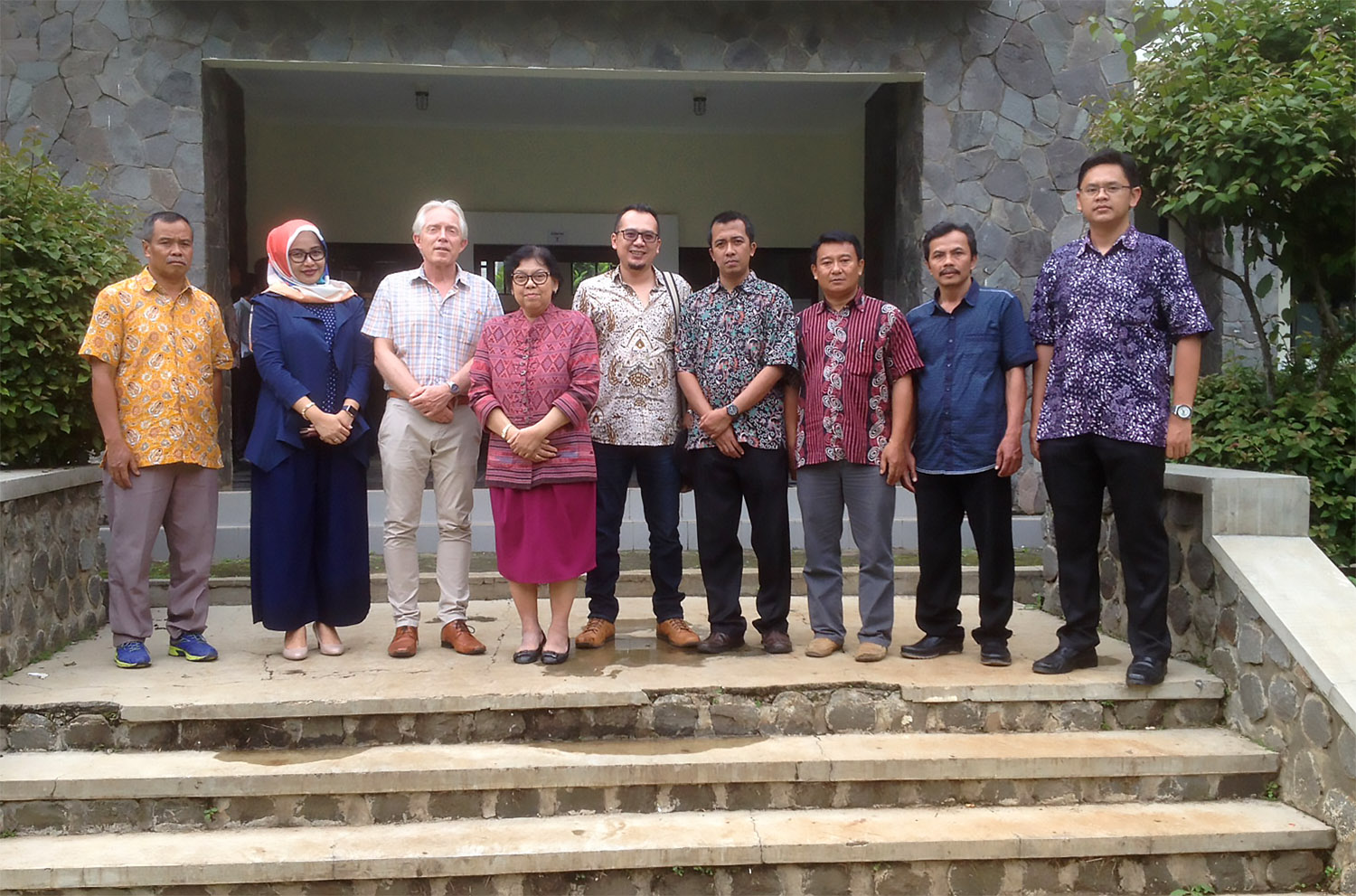Two PhDs last steps in capacity building trajectory in international law for Indonesia
Two Indonesian PhD candidates are scheduled to defend their theses in the coming months. Upi Rachminawati will defend her critical assessment of the functioning of the ASEAN* Intergovernmental Commission on Human Rights at the International Islamic University of Malaysia (IISM). Alia Putri will defend her thesis on how to respond to piracy-like criminal activity in Indonesian waters at the UM. Both candidates are staff members of the international law department of the Faculty of Law of Universitas Padjadjaran (UNPAD), and the defence of their PhD research is the last in a chain of activities, stretched over a period of six years, aiming to build capacity in state-of-the-art knowledge in international law for Indonesia.
UNPAD is not a poor institution in dire need of development assistance. On the contrary, it is one of Indonesia’s top public universities, based in Bandung, Indonesia’s third largest city. Moreover, for decades UNPAD’s Faculty of Law has been one of the major knowledge centres for international law in Indonesia, with many alumni holding senior positions in the government and ministries in Jakarta. Still, in a rapidly globalizing world it is hard to catch up with all latest developments in international law, legislation and legal practices on a global level – at the same time, for an emerging major economy of almost 300 million people that Indonesia currently is, it is absolutely vital to bridge this gap, to enable to manifest itself as a future major player on the global scene.
That is the context in which Maastricht University and UNPAD started six years a common project, with the main aim to strengthen research and education in international law at UNPAD. The project was funded by the Netherlands government through Nuffic, and the UM was selected by UNPAD among several candidates as the preferred partner to implement this project. UM’s educational approach of problem-based learning combined with many practical trainings – including moot courts to practice various legal skills and positions – was one major reason why UNPAD preferred to work with the UM.
Now the project is coming to its close, it may be concluded that a firm upgrade of the international law department of UNPAD has been given, with many inputs from UM’s Faculty of Law staff, from some educational staff of other UM faculties and also from Clingendael, the Netherlands’ Institute on International Relations, that partnered with the UM in this venture. Next to the two PhDs, the full international law department staff at UNPAD received various trainings, in the Netherlands and in Indonesia, on latest developments in various international law domains. Some UNPAD staff came over to UM for longer periods, two to three months, to study certain legal topics in depth and prepare publications. A series of workshops on modern educational approaches (PBL etc.) were offered to the UNPAD staff. Several new courses on international law topics were introduced in the UNPAD law curriculum. And even the building in which UNPAD’s Faculty of Law is accommodated, was completely refurbished and upgraded to accommodate small group learning and a moot court. Positive feedback was already received from the Indonesian government as a major employer of UNPAD graduates who went through the upgraded law curriculum as a result of this project.
It is not only UNPAD and Indonesia that gain from a project like this. Also for Maastricht University it is a learning experience to implement a project like this. The many visits of UM staff to Indonesia and the as many staff visits from Indonesia to UM add to a shared awareness and new knowledge concerning how international legal issues and challenges play out in different parts of the globe, in this case specifically for a large country (Indonesia) and region (ASEAN) in the global South. With the ambition to be a truly European university positioned in a globalizing world, for the UM it is crucial to have such shared learning experiences with partner universities around the globe.
With all that, this project is a good example of UM’s efforts to make a real contribution to the SDGs by cooperating with major partners in the Global South. The UM makes more contributions like this through collaborations with partners mainly in the global South, in projects and programs implemented by units like UNU Merit, SHE Collaborates, Mundo and the Maastricht School of Management, some of which we will highlight in forthcoming issues of this Newsletter. Together these efforts provide a good illustration of Maastricht University’s global engagement.
*ASEAN: Association of South East Asian Nations

Also read
-
Flour, family, and forward thinking: the evolution of Hinkel Bäckerei
In the heart of Düsseldorf, the comforting aroma of freshly baked bread has drifted through the streets for more than 130 years. Since its founding in 1891, Hinkel Bäckerei has evolved from a small neighborhood bakery into a cherished local institution.
-
Contribute to a Voice for Children in Conflict Areas
Dr Marieke Hopman and Guleid Jama are launching a new research project on the role of children in peacebuilding in conflict areas.
-
Administrative integration through agency governance The role of Frontex, the EUAA and Europol
PhD thesis by Aida Halilovic